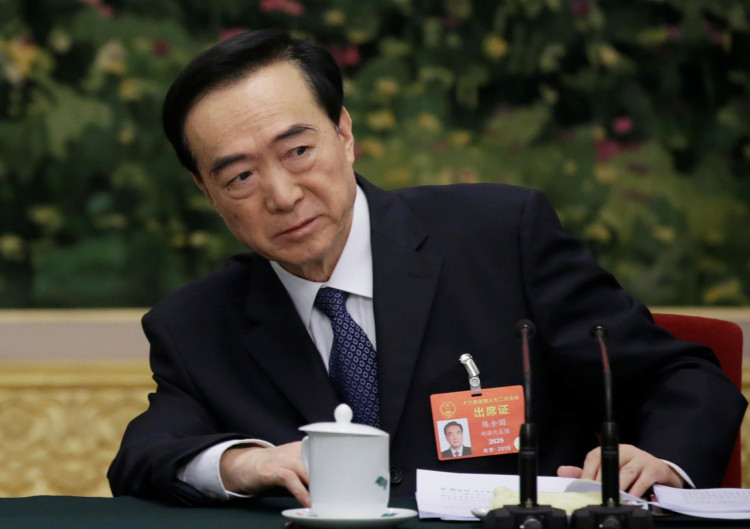China has announced fresh sanctions on top U.S. officials including senators Ted Cruz and Marco Rubio in a mostly symbolic retaliation on laws aimed at punishing Beijing for its handling of ethnic minorities in the Xinjiang region.
Hua Chunying, spokesperson for China's Foreign Ministry, disclosed that the sanctions against the US officials will start on Monday, without giving any further details.
Bloomberg News reported that Hua listed the two US senators - both Republicans and vocal critics of China - as targets of the as-yet unclear sanctions, in addition to Representative Chris Smith, Sam Brownback, and the Congressional-Executive Commission on China.
The unspecified corresponding sanctions were made public days after the United States implemented visa restrictions and asset freezes on key Chinese officials, including the country's Communist Party director in Xinjiang, Chen Quanguo, over alleged rights abuses in the region.
The two sides have been at loggerheads and exchanged sanctions on a host of sensitive matters since US President Donald Trump was elected into power, from international trade to more recent rows over the global health crisis, security legislation in Hong Kong, and Chinese policies in the far western regions of Tibet.
In carrying out new sanctions on one Chinese government group and four officials under the 2016 Magnitsky Human Rights Accountability Act, US Treasury Secretary Steven Mnuchin stated that Washington would unleash the full breadth of its financial influence to hold human rights violators responsible in Xinjiang and across the globe.
Beijing has repeatedly vowed to hit back over US actions meant to support the people of Hong Kong, Xinjiang, and Taiwan, accusing Washington of unjustly meddling in China's internal affairs.
Those sanctioned include Xinjiang Uighur Autonomous Region party secretary Chen Quanguo and former secretary Zhu Hailun, as well as Xinjiang Public Security Bureau chief and party secretary Wang Mingshan and former party secretary Huo Liujun.
For months, top administration officials had been pushing for the sanctions but had been impeded by Trump, who worried that they would only complicate his China-US trade agreement.
Meanwhile, Chinese Vice Foreign Minister Le Yucheng on Wednesday stressed that his country is willing to cooperate with the U.S.but that there was no room for foreign intervention on Xinjiang, Taiwan, Hong Kong or Tibet.
China is unwavering in its determination to oppose forces of terrorism, violence, forces of separatism, and that of religious extremism, Hua pointed out. The Chinese official added that the government's determination to fight off any external forces' intervention in Xinjiang and China's internal affairs is unwavering as well.






